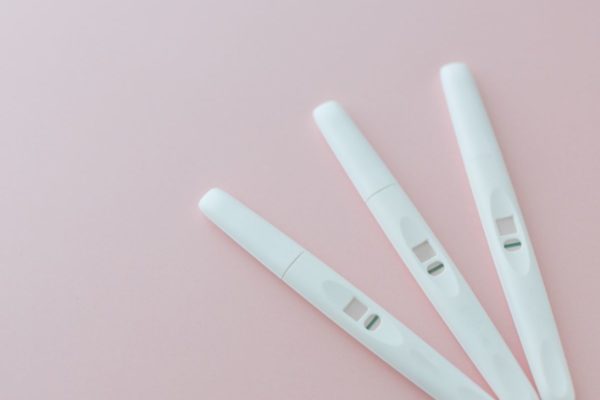
This week is National Infertility Awareness Week. Infertility is on the rise and is defined as being unable to conceive after having unprotected sex for at least one year. The Centers for Disease Control statistics from 2015 through 2017 show that approximately six percent of married women in the United States of childbearing age are infertile as defined, and twelve percent (or about one out of every eight women) have impaired fecundity. Impaired fecundity is when a woman has trouble achieving pregnancy or carrying a pregnancy to term.
If you are one of these statistics, I want to give you some hope and resources to start looking at root causes. When I first started practicing as a Women’s Health Nurse Practitioner, I prescribed birth control since we were basically taught that was the answer to all women’s problems. However, I started noting that very young girls were placed on birth control for various reasons (cramps, irregular periods—even acne). Then, they stayed on it when they became sexually active. Years down the road, when they were ready to start having a family, they went off birth control—only to find the same problems and often, infertility. The birth control was just acting as a band aid for all those years. No one had ever really corrected any hormonal imbalances or actual causes for their symptoms. I was constantly searching for something better.
When I went back for my doctorate degree, I decided to focus on hormones. I only use bioidentical hormones (made into the same chemical structure as your own body’s hormones) in my menopausal women, and was looking for an answer for my patients in their reproductive years. That is when I found Creighton Model FertilityCare. I underwent the training and have never looked back. It has been so rewarding to work with a woman’s body instead of against it. Dr. Thomas Hilgers, the founder, has done extensive research on a woman’s cycle and the biomarkers in a woman’s charting. When he compared numerous labs in the menstrual cycle—as well as sonograms to watch the ovary through ovulation– to what he was seeing in a more standardized charting system taught to the women, he realized early on that their charting was a road map to their health. The science that has resulted from this research is called NaproTechnology (natural PROcreative technology). As a Certified FertilityCare Medical Consultant, I am trained to evaluate those biomarkers and order testing (which is timed in the cycle more precisely to be of more value) and treatment (which is given in a cooperative manner in the cycle to be more effective) which helps to correct the imbalances.
The benefit to this approach was made evident to me in one of the first couples I saw for infertility. They had been trying to conceive again since the birth of their son, who has just turned 4 years old, and had almost given up hope. They had been to a Reproductive Endocrinologist who told her that her hormones were normal in their testing and they did not know why they were unsuccessful in their attempts to help them (short of in vitro fertilization). After her initial consult, we did the Targeted Hormone Profile on her and found that her hormones (estradiol and progesterone) rose normally after ovulation UNTIL her third draw, and then they plummeted. After using one cycle of a medication (HCG) that helped her body to continue to make these hormones, she became pregnant. (Now, it is often not that easy as there can be multiple things to identify and correct.)
We also investigate other possible causes of infertility (through possible sonogram series, cultures, seminal fluid analysis, etc, if needed) as well as work on helping the mucous cycle to help in normalizing fertility. I have also learned through my additional training in Functional Medicine, about the importance of gut health and the interplay of adrenals, thyroid, and hormones on one another. So these are also investigated in my patients.
If the couple does not conceive after using Medical Naprotechnology described above, then we can refer them on to a Napro surgeon to investigate for structural abnormalities in the uterus and pelvis, tubal problems, low grade infections and endometriosis. These surgeons have completed a year long fellowship to learn specialized surgical techniques to recognize and find endometriosis as well as treat in a manner that avoids complications of scarring.
Creighton Model FertilityCare can also be used to avoid pregnancy, with studies showing that when used appropriately, it matches or can even exceed the effectiveness of the birth control pill without putting other chemicals in your body. I also have several patients who are not sexually active, but utilize the system to address hormonal issues (cramps, irregular cycles, PMS, polycystic ovarian syndrome/PCOS). That means these patients have already worked on hormonal imbalances and overall health to enable more success in achieving when they are ready to become pregnant in the future.
If you are interested in learning the Creighton Model FertilityCare system, we have Fertility Care Practitioners at MyCatholicDoctor who will first teach you how to chart your cycles. Once you have charted one to two complete cycles, then schedule a Napro consult with a trained Medical Consultant licensed in your state.
Never give up – there is always hope!
Author: Diane Dunniway, Women’s Health Nurse Practitioner and Certified Fertility Care Medical Consultant (CFCMC) with MyCatholicDoctor
Editor: Samantha Wright, MBA, Marketing Director with MyCatholicDoctor
Leave a reply
